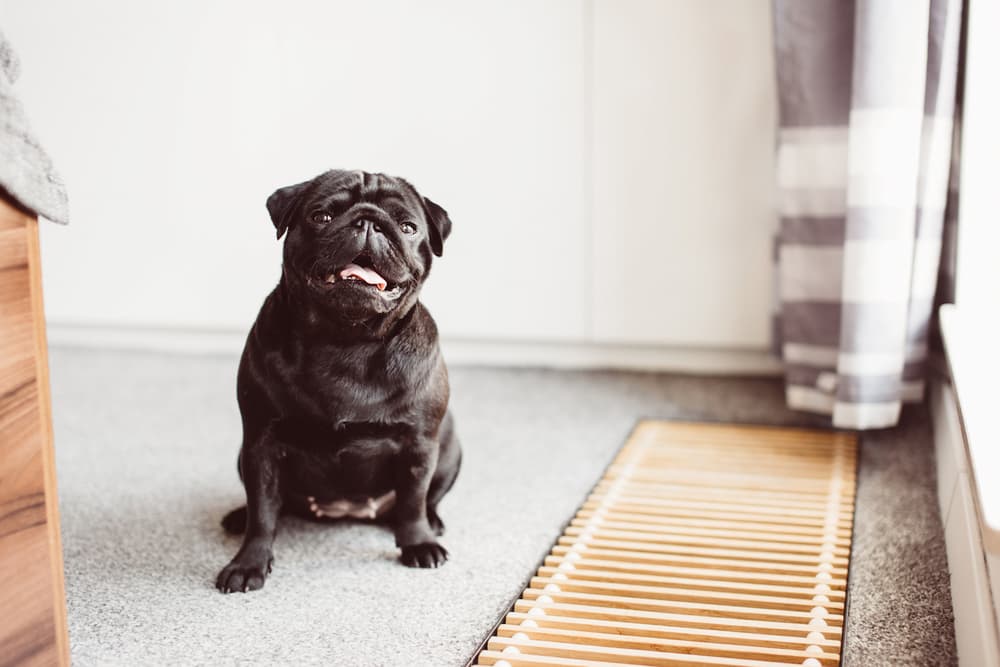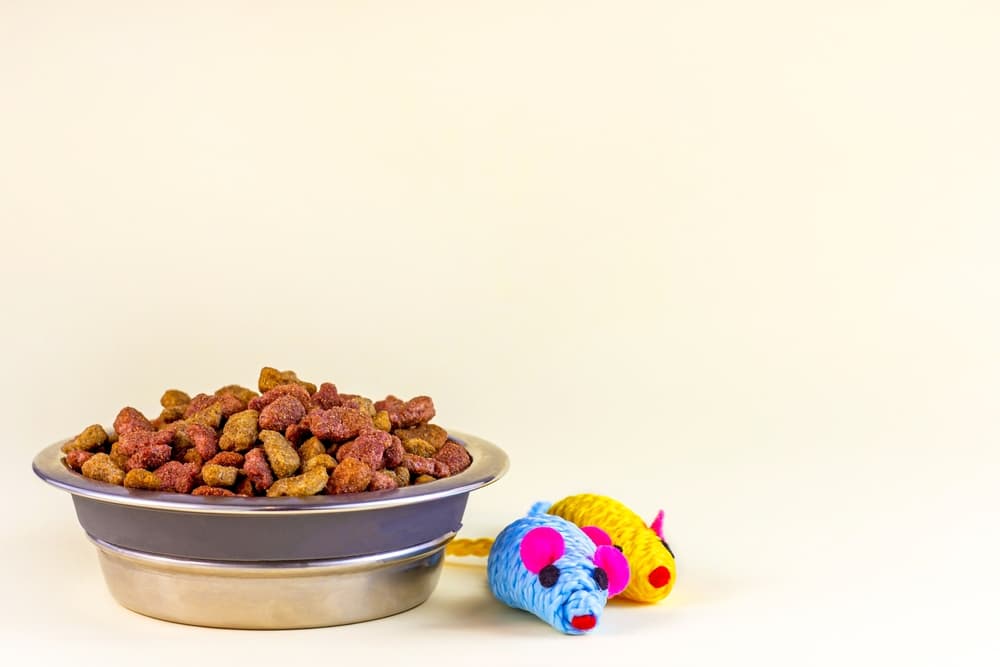Can Dogs Eat Cat Food?

Have you ever slipped your dog a few salmon-flavored cat treats when he begged for them or cracked open a can of wet cat food when you ran out of his regular brand, thinking, “It’s all pet food, what difference does it make?” You’re probably not the only one.
Just like the occasional sweet treat or salty snack isn’t harmful to our health, crunching on cat food isn’t going to cause your dog’s health to go downhill, as long as it’s not a regular part of their diet.
Can Dogs Eat Cat Food?

The question is not whether dogs can eat cat food, it’s whether they should—and the answer is pretty straightforward, says Dr. Megan McCarthy, a veterinarian at Best Friends Animal Society in Salt Lake City, Utah.
“In general, it is not a good idea for dogs to eat cat food,” she says.
That said, don’t fret too much if your mischievous mutt sneaks a few bites from the cat food bowl. McCarthy says that the occasional mouthful of cat food isn’t going to hurt your dog but adds that, “if you feed them cat food long term, it can cause problems.”
Can Dogs Eat Cat Food in an Emergency?

An ASPCA study found that 40 percent of pet owners who evacuated during natural disasters didn’t return home for at least four days (and some were displaced for up to two weeks). Moreover, most weren’t prepared to leave, so there was likely no dog food packed in their go-bag.
Suppose a natural disaster or other emergency forces you to flee with no dog food and no easy access to stores to stock up. In that case, cat food is an acceptable temporary substitution. It’s also okay to dish out a bowl of cat food if supper rolls around and you realize you forgot to stop at the store, but your goal should always be to get your dog back on his regular diet as soon as possible.
While feeding your dog small amounts of cat food short term is unlikely to cause any significant issues, McCarthy says that any food change can cause some gastrointestinal upset. Diarrhea is a common effect of a sudden food change in dogs.
Why Can’t Dogs Eat Cat Food?

Dogs and cats have unique nutritional needs and different vitamin requirements.
“Cats are obligate carnivores, meaning they must eat meat,” says McCarthy. “Dogs are omnivores, meaning they must consume meat, vegetables, and usually a carbohydrate source. Dogs require a diet with more variety than cats.”
In addition, cats need more protein than dogs and require additional nutrients, including the amino acids taurine and arginine and higher amounts of niacin and certain B vitamins. Feeding your dog food formulated for cats may create imbalances in the necessary nutrients for optimal growth and development.
McCarthy says companies that formulate pet foods will stick to a high protein source, fiber, and appropriate vitamins for cats. In contrast, dog foods have more varied ingredients with a protein source, vegetables, and usually a carbohydrate source.
Can Dogs Get Sick From Eating Cat Food?

Even if your dog seems to love the taste of cat food, over-indulging or eating cat food as part of their regular diet could make him sick. McCarthy says that gas and diarrhea are the most likely symptoms of changing your dog’s food, but more severe symptoms are possible.
“The high protein content and different nutrients can cause health problems like pancreatitis [inflammation of the pancreas] and obesity,” she says. “The higher protein content can also be harsh on a dog’s liver and kidneys.”
Can Dogs Eat Cat Treats?

Dogs should not regularly eat cat treats. Cat treats, like cat food, are designed for cats. McCarthy says that it may be okay to use cat treats for training purposes on an occasional basis, but advises against regularly rewarding your dog with cat treats, especially if your pup is prone to tummy troubles.
“If your dog has a sensitive stomach, cat treats can be a little rich for a dog,” she says.
What to Do if Your Dog Is Eating Cat Food

You might not be feeding cat food to your dog, but that doesn’t mean he isn’t seeking it out on his own. In multi-pet households, it’s common for dogs to raid the cat food bowl.
You can prevent stomach upset and overeating (and an increased risk of obesity) and ensure your dog is getting the nutrients he needs by following a few simple rules to keep him out of the kitty kibble:
- Feed your dog and cat in separate rooms.
- Do not let your pets free feed (graze throughout the day) and remove uneaten food after mealtime.
- Place cat food bowls on countertops or elevated surfaces, out of your dog’s reach.
Whether your dog sneaks a few bites from the cat food bowl or eats a can of wet cat food in an emergency, it’s okay for your dog to eat small amounts of cat food, but it should never be the mainstay of his diet.









